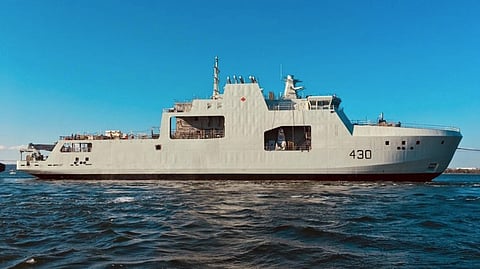

A federal briefing asserts climate change may open Canada’s most northern deepwater port to export markets 300 days a year, an increase from about 120 days — by year 2100.
The Port of Churchill initially built for wheat exports to the United Kingdom is currently icebound eight months out of twelve, per Blacklock’s Reporter.
“What is the viability of the Port of Churchill? The Port of Churchill in northern Manitoba is Canada’s only Arctic deepwater port,” said a May 7 brief from Prairies Economic Development Canada.
The port opened in 1931 with an inaugural shipment of 277,000 bushels of Prairie wheat to Liverpool but is typically inoperable much of the year.
“The port is currently operational for approximately 16 weeks of the year when waters have thawed enough to be navigable,” wrote the agency.
“This 16-week window continues to increase by approximately one day per year as waters thaw earlier and freeze later due to climate change.”
“The shipping season to and from Churchill could become closer to year-long earlier than previously estimated.”
“By 2100 new research projects the shipping season to and from Churchill could grow to more than 300 days assuming minimal or no emissions reductions, or 240 days with moderate emissions reductions,” said the note.
“With a certain level of icebreaking capacity and other precautions, the new research finds year-round shipping to and from Churchill is technically already possible using certain paths.”
Churchill is served by Canadian National freight lines through the Hudson Bay Railway from The Pas, MB.
“The port is positioned to import and export commodities, critical minerals and natural resource products through the Arctic to the world,” said the note.
The Standards Council of Canada in a 2015 report said the impact of climate change was most dramatic in Arctic regions. Annual mean temperatures increased up to 3° in the North from 1950.
“All seasons have become wetter,” said the report.
Witnesses at 2017 hearings of the Senate Agriculture Committee went further in forecasting Arctic agriculture.
“We call these agricultural frontiers,” testified Dr. Evan Fraser, Canada Research Chair in Global Food Security at the University of Guelph.
“There is a tremendous amount of interest being applied to this idea of cultivating the North.”
“The climate is changing and producing problems. However it also produces opportunities. Let’s make sure we do this properly. A bit of federal leadership would be helpful.”
